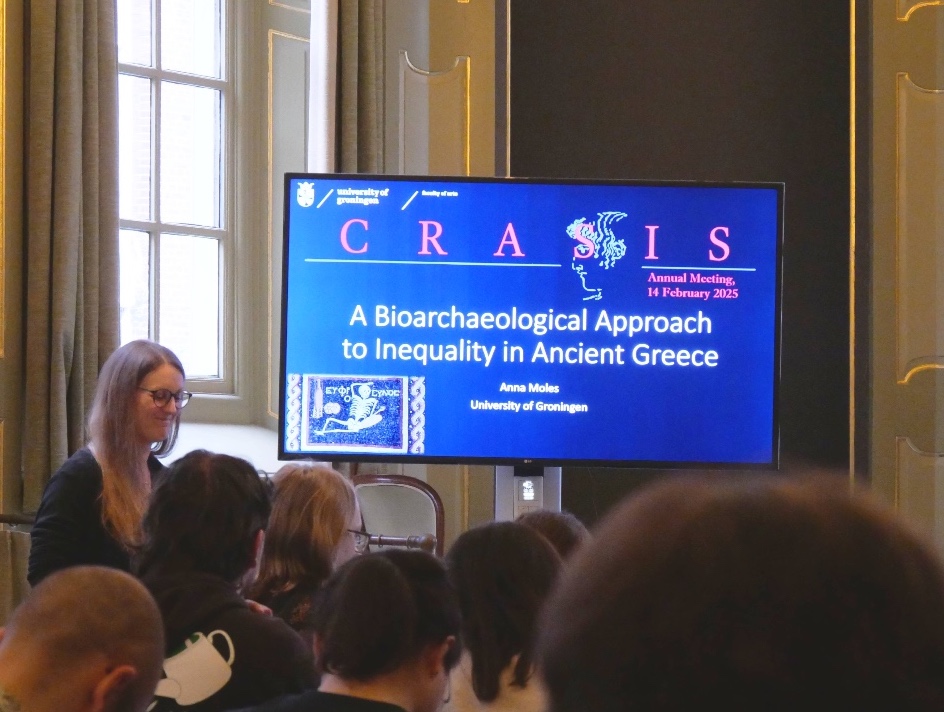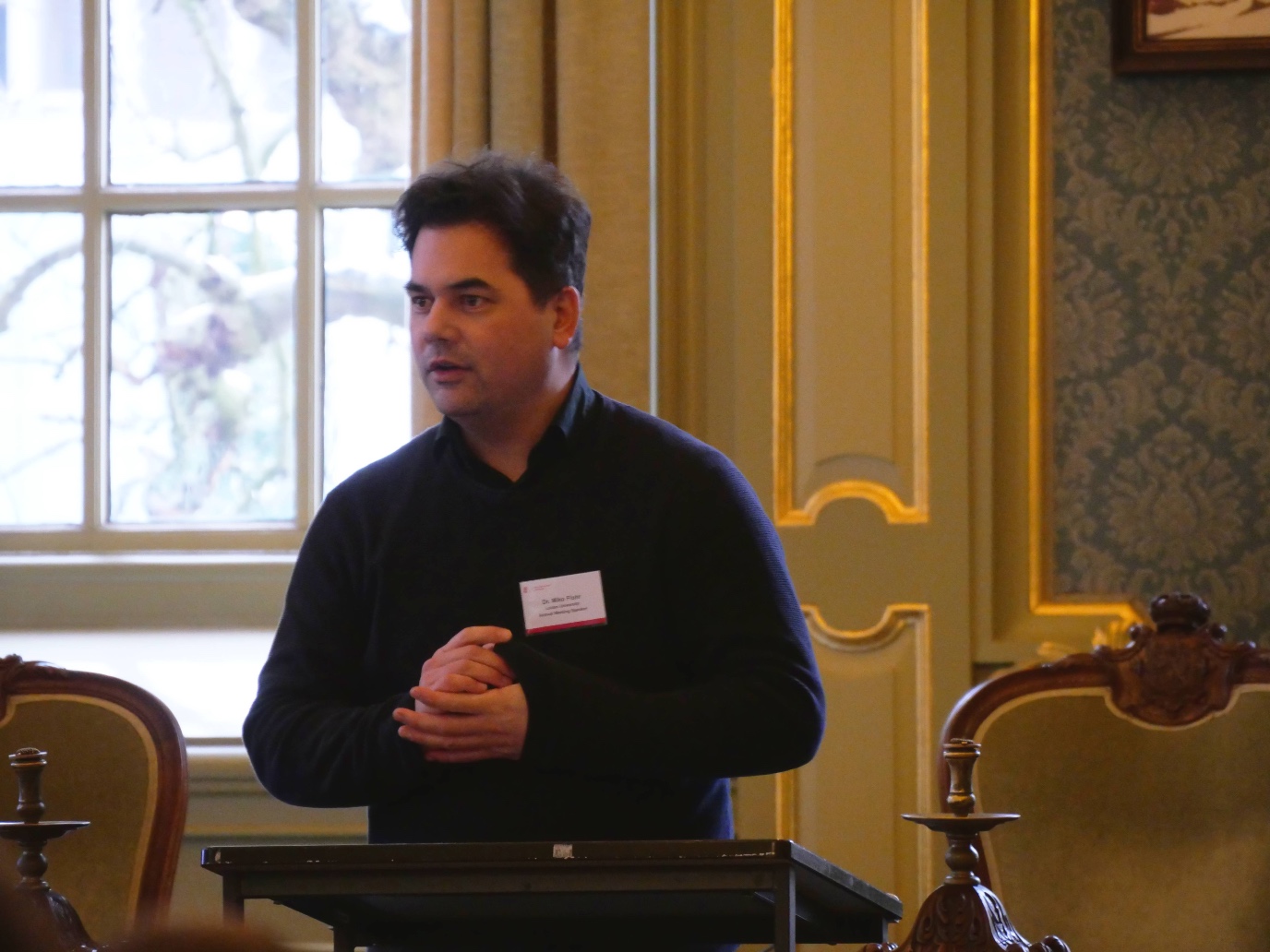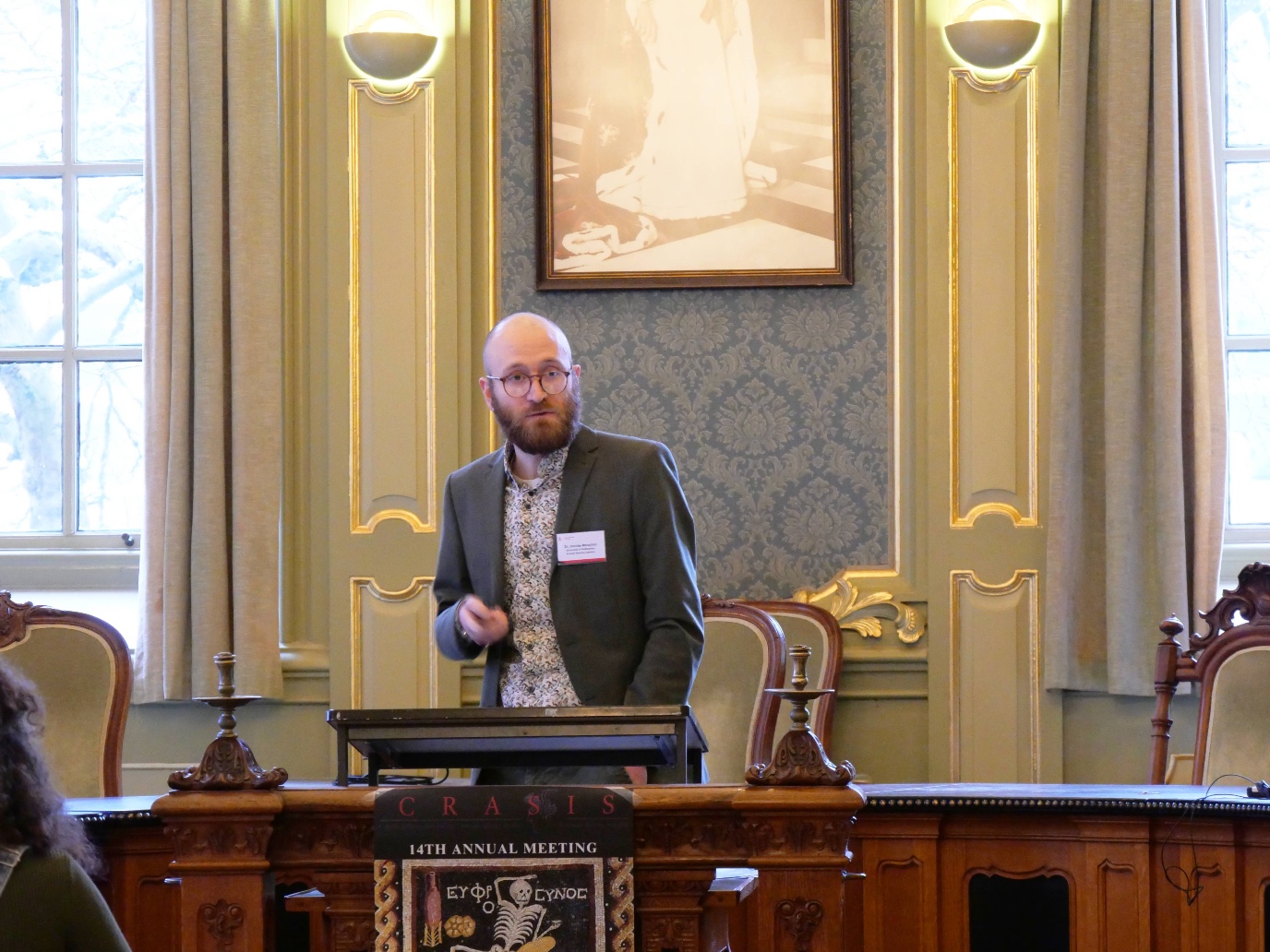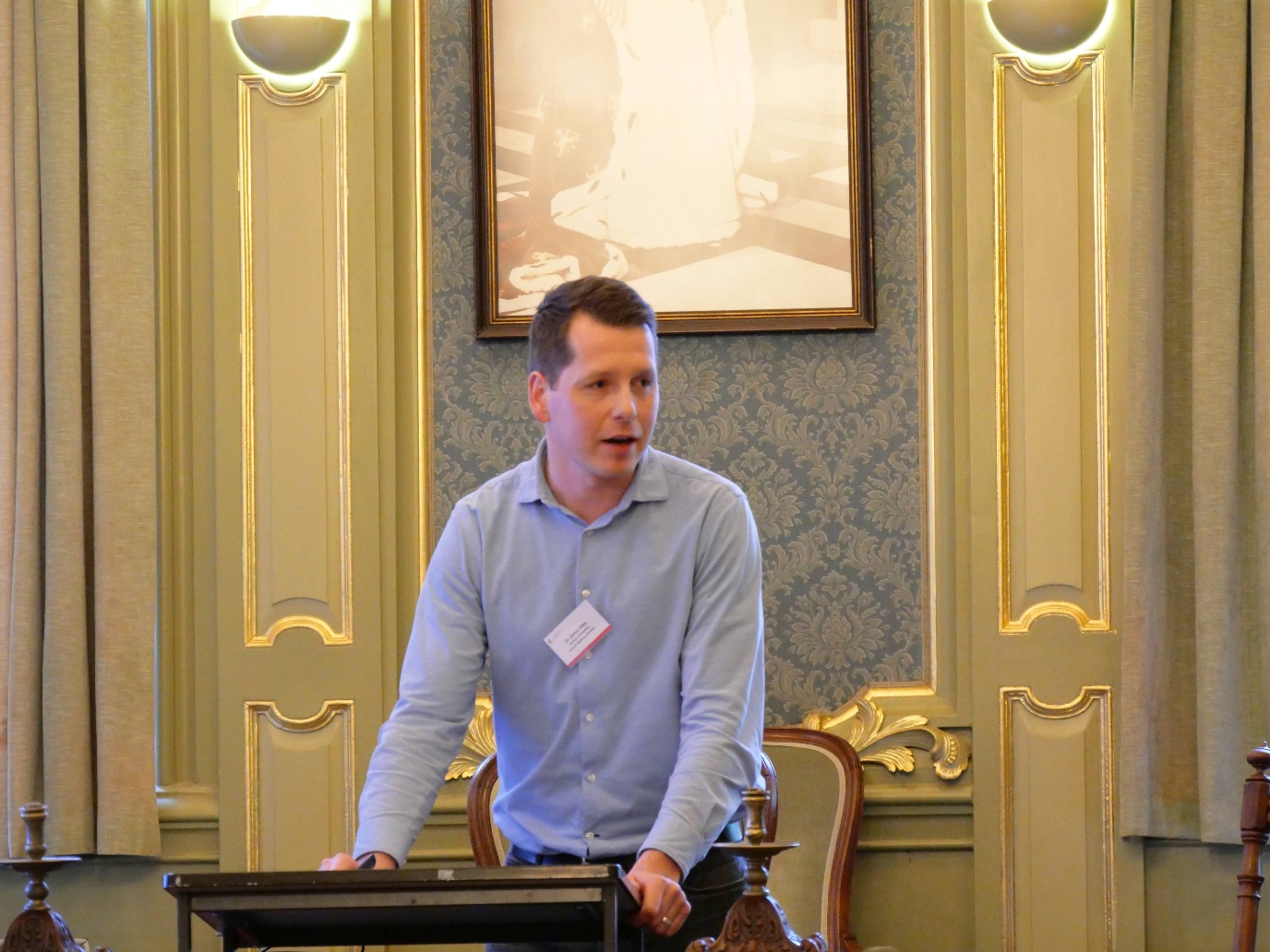CRASIS Annual Meeting and Masterclass 2025


The CRASIS Annual Meeting 2025 took place on Friday, 14 February at the University of Groningen, promoting discussions and idea exchanges about the ancient world across traditional disciplinary boundaries. Each year, the event features an internationally recognized expert, and this year, we were honored to welcome Prof. Peter Kruschwitz from the University of Vienna. He led the masterclass and delivered the keynote lecture, focusing on the designated theme for the 2025 Masterclass and Annual Meeting that will be elaborated below.
Approaching the Ancient World from Below
This year’s CRASIS Masterclass and Annual Meeting focuses on ‘the other 99%’—the lives and experiences of non-elite individuals in the ancient Mediterranean world. We aim to address the challenges of reconstructing their histories, particularly the issues surrounding the (un)representativeness of sources such as literary texts, epigraphy, material culture, and archaeology, as well as the marginalization or silencing of these groups along various axes like ethnicity, gender, and class. We invite participants to consider how interdisciplinary approaches can tackle these challenges, with a focus on recent methodological innovations, such as critical fabulation and advances in bioarchaeology. Additionally, we seek to reflect on the scholarly biases in our disciplines, which have often overlooked the active contributions of the ‘99%’ to cultural development. Finally, we’ll explore how new insights into these marginalized groups impact contemporary understandings of antiquity and heritage management. How can interdisciplinary research across fields like history, archaeology, literature, and bioarchaeology help overcome the challenges of representing non-elite groups and their experiences in the ancient world?Contributions are welcome from all areas of Ancient Mediterranean research, including history, archaeology, art history, literature, linguistics, philosophy, religious studies, legal history, and heritage studies.






Programme
-
09:30-10:00 Coffee, tea, and registration
-
10:00-10:10 Opening remarks and welcome
Session 1 Moderator: Prof. Bettina Reitz-Joosse
-
10:10-11:10 Keynote lecture by Prof. Peter Kruschwitz (University of Vienna): "Rebuilding Ancient Cultural History: A Bottom-Up Approach"
-
11:10-11:40 Coffee and tea break
Session 2 Moderator: Dr. Rebecca Van Hove
-
11:40-12:15 Dr. Anna Moles (University of Groningen): "A Bioarchaeological Approach to Inequality in Ancient Greece"
-
12:15-12:50 Dr. Miriam Groen-Vallinga (Radboud University Nijmegen): "A Slave with Her Master’s Child: A Revised Osteobiography for Two Victims from Herculaneum"
-
12:50-14:10 Lunch
Session 3 Moderator: Dr. Kimberly Fowler
-
14:10-14:45 Dr. Miko Flohr (Leiden University): "Antiquity from the Ground Up? Architecture and Lived Inequality in Roman Italy"
-
14:45-15:20 Dr. Emilia Mataix Ferrándiz (International University of Catalonia): "Ticius Lawless? Commercial Epigraphy and the Dynamics of Roman Trade"
-
15:20-15:50 Coffee and tea break
Session 4 Moderator: Prof. Felix Budelmann
-
15:50-16:25 Dr. Davide Massimo (University of Nottingham): "Working Class Hero? Leonidas of Tarentum’s Poetry of the Common Folk"
-
16:25-17:00 Dr. Eelco Glas (Aarhus University): "Vivid Representation and Victims of Forced Displacement in Jewish Literature in Greek (2nd Century BCE-1st Century CE)"
Closing and Reception
-
17:00-17:10 Closing remarks by chair
-
17:10 - Drinks and reception (open to all)
-
18:30 Dinner (for registered participants) at Weeva Restaurant, Gedempte Zuiderdiep 8-10, 9711 HG Groningen
About the keynote speaker
Peter Kruschwitz is Professor of Ancient Cultural History at the Faculty of Historical and Cultural Studies of the University of Vienna. His research focuses on poetic culture and song culture, the history of mentality, and non-elite cultural practice in the Roman Empire. He is both a distinguished scholar of Latin literature and an eminent epigraphist, and his pioneering research on ancient verse inscriptions crosses the traditional disciplinary divide between these two specialisms, offering new ways of understanding poetry as much more than an elite form of cultural expression. Based on the substantial amount of (often neglected) verse inscriptions that survive from Roman times, his ERC Advanced project “Mapping out the poetic landscape(s) of the Roman Empire: ethnic and regional variations, socio-cultural diversity, and crosscultural transformations” has significantly expanded our understanding and appreciation of Roman poetry as an expression of an ethnically, socially, and linguistically diverse cultural practice.
Information for PhD/ReMa Students
To participate in the Masterclass, Master students are expected to submit a paper of 3,000–4,000 words. PhD students submit a paper of 5,000–6,000 words. These papers will be circulated among the participants and are therefore to be submitted no later than January 27th, 2025. During the Masterclass, the participants will introduce their paper, followed by responses from a fellow student and Professor Peter Kruschwitz.
For students at Dutch universities, the Masterclass counts as an OIKOS, ARCHON or NOSTER activity and students will earn three course credits (EC) by active participation.
For more information, please send an e-mail to crasis.aws rug.nl or see the website.
Previous meetings
-
2024: Between Image and Text. Keynote & Master: Prof. Jás Elsner
-
2023: Sensing, making, relating: Ontologies of the divine. Keynote & Master: Prof. Esther Eidinow
-
2022: Exemplarity. Keynote & Master: Prof. Rebecca Langlands
-
2021: Christian Origins and the Mediterranean Landscape. Keynote & Master: Prof. Laura Nasrallah
-
2019: Identity: Past & Present. Keynote & Master: Dr. Louise Revell
-
2018: Motivation & Causality. Keynote & Master: Prof. Dr. John Ma
-
2017: Ancient Health. Concepts, Materiality, and the Experience of Life. Keynote & Master: Prof. Dr. Ralph Rosen
-
2016: Hellenism: Interaction, Translation and Culture Transfer. Keynote & Master: Prof. Dr. Benjamin Wright
-
2015: Crisis! The Identification, Analysis, and Commemoration of Crises in the Ancient World. Keynote & Master: Prof. Dr. Monika Truemper
-
2014: Cultural Knowledge in the Ancient World: Production, Circulation and Validation. Keynote & Master: Prof.Dr. Marietta Horster
-
2013: Cultural Encounters in the Ancient Mediterranean. Keynote & Master: Prof.Dr. Martin D. Goodman
-
2012: Cultures of Networks in the Ancient Mediterranean. Keynote & Master: Prof.Dr. Greg Woolf
| Last modified: | 13 March 2025 9.40 p.m. |
